Want to move to the UK? The process might seem daunting, but in this complete guide, we will go through all the checklists preparing for your big move.
Moving to the UK is an exciting time, but it’s not without difficulties. Moving countries in general is not easy, given that you need to arrange many things at once. Accommodation, your visa, healthcare, your job and so much more. With a never-ending list of things to do, it’s easy to see why there are so many horror stories about moving abroad. Don’t worry, though, with the right guide and order on getting things done, your move to the UK can be seamless and comfortable.
We have a lot of experience moving countries, which is why de decided to create this epic guide for you. We’ll discuss the system, how to integrate, what you need to know about renting a property and how to deal with registration for the council, doctors and more.
Here’s everything you have to know about starting a new life in the UK.
Table of Contents
- Moving to the UK
- UK Immigration
- Work in the UK
- Statutory Sick Pay (SSP) in the UK
- Holiday entitlement rights in the UK
- Maternity pay and leave in the UK
- Paternity pay and leave in the UK
- Income in the UK
- Taxes in the UK
- Is the UK expensive?
- Study in the UK
- Homes for Rent in the UK
- Type of rental properties
- Student or Professional rental properties
- Agency vs No agency
- Costs of rental properties
- Requirements for homes to rent in the UK
- Things to check in rental properties
- Rental property terminology
- Healthcare in the UK
- A&E services
- Non-A&E services
- Sexual Health
- Prescriptions cost in the UK
- NHS Dental
- Friendships and family in the UK
- “Hidden” costs for expats
- Banking in the UK
- Cultural difference
- British citizenship
Moving to the UK
As with every major decision in your life, moving to the UK should be seriously considered. Although it’s a nice country which can offer numerous opportunities, there are many factors which should be considered. First, you should understand why you wish to live in the UK.
Make a list and write your reasoning next to everything you like. Decide exactly what you want to do once you arrive in the UK. Remember, you will need to do a few things before your arrival.
Depending on your visa, you might need proof that you have enough money to settle in the UK. If you don’t have a job yet, it’s a good idea to start looking and applying before you come. There are currently several shortage occupations for skilled worker visa.
Before you embark on your adventure, have a look at our comprehensive guide on everything you need to know before moving abroad. We did this several times now, so we are aware of all the hardship that comes with such a big lifestyle change.
UK Immigration
You’ll need to arrange for your Visa before your arrival. If you wish to move to the UK, you’ll need a visa. There are several visa options, and it all depends on whether you wish to move to the UK to join family, to work or to study.
Make sure to check your visa options on the official government website.
There are different visas depending on:
- where you come from
- why you want to come to the UK
- how long you want to stay for
- your personal circumstances and skills
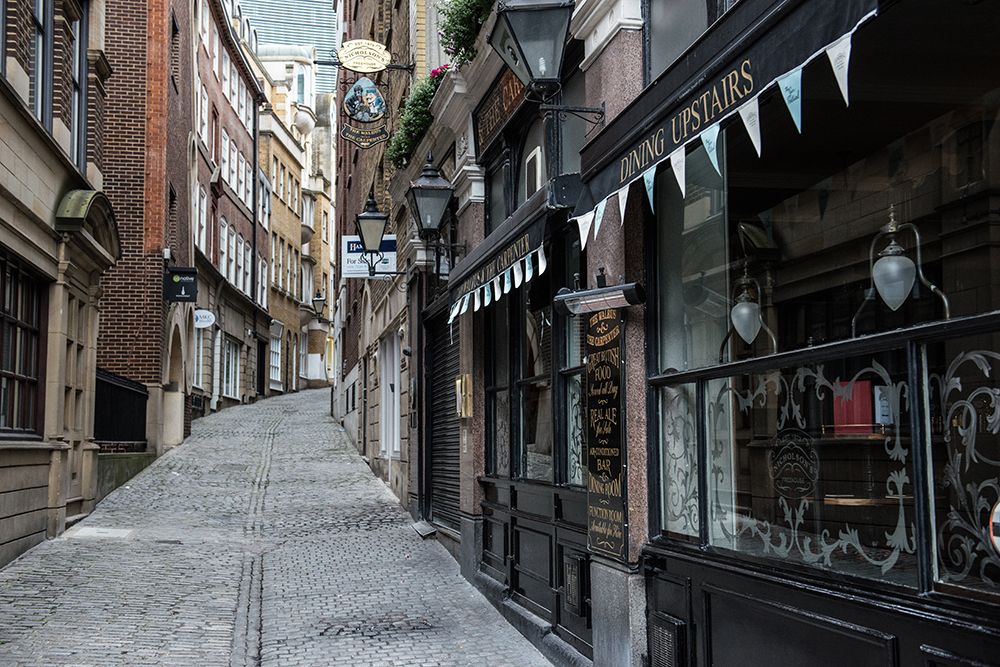
Work in the UK
There are several occupations which are in short supply in the UK. You can find an up-to-date official list on the Government Website.
In general, it’s good to know that the UK is currently on the lookout for scientists, medical practitioners, science teachers, chefs, and engineers. You can usually find a vacancy in the hospitality or retail sector, but there are fewer chances of you getting sponsorship from your employer for a job like this.
There are a few things you need to be aware of when you decide to work in the UK. Most British companies have specific hierarchies in place whereby managers are responsible for their employees and take their jobs seriously. Being a good manager means being able to lead a team, whilst proactively communicating with your employees to increase efficiency.
Teamwork is highly valued in the UK, and it is common for co-workers to form bonds at work and go out for drinks after work. In fact, it’s one of the easiest ways to find friends this way. People are easy-going and usually very inclusive. As with most new roles, it takes a while for the rest of your co-workers to get to know you, but in a few weeks, you will already find yourself having new friends. When you start a new role, you usually get invited to join other colleagues for lunch breaks, so you can socialise and get to know one another.
It is good to know that the British love their meetings. Very likely, you will have a daily catch-up as a team. With the new remote jobs booming, a daily Zoom meeting is also likely. It might be difficult to get used to it, but simply grab a cup of tea and have the schedule ready. Meetings tend to also be planned way in advance, as well as one-to-ones whereby you have a meeting with your managers to discuss your performance and areas of improvement. Once a year, you usually have a meeting to discuss a potential promotion or salary increase. Not all companies do this, however.
You do have many rights as an employee in the UK, and the good news is that most of them are taken seriously. Every company has its internal way of dealing with complaints, but should all fail, you do have enough free advice available to guide you on your quest to justice. You should remember the Citizens Advice Bureau which offers free, unbiased guidance.
When you start working somewhere, make sure you read through and fully understand your contract. The moment you start your work, keep track of all your responsibilities and accomplishments. Should someone bother or bully you, make sure you have a sheet to hand whereby you note everything down, including the date and hour. Keep track of all these, so when you escalate your issue to the HR department, you have proof and detailed information.
The British are polite and formal, but you will notice sarcasm, irony and a uniquely British sense of humour which can express criticism in a more indirect manner. This is difficult to understand by foreigners, but eventually, you will get the gist of it. You will also be able to read between the lines.
There are obvious class distinctions in Britain, and you will rapidly notice them. Men still dominate the higher management positions in the UK, and there are some salary discrepancies between women and men. In general, workplaces tend to be safe and trouble-free. You can make friends and get a better understanding of British culture.
Here are some important things you need to be aware of when you work in the UK.

Statutory Sick Pay (SSP) in the UK
You can get £99.35 per week Statutory Sick Pay (SSP) if you’re too ill to work. It’s paid by your employer for up to 28 weeks.
You need to earn at least £123 (before tax) per week, and have been off work sick for 4 or more days in a row (including non-working days).
You can’t get less than the statutory amount. You can get more if your company has a sick pay scheme. Check the UK Government website for more details as well as information about taking sick leave.
Depending on your job, you might be able to enjoy bank holidays. Click here for an up-to-date UK bank holiday schedule. If you have an office job, you will probably get these days off. If you work in hospitality or retail, you might be getting your 1.5 x hourly rate during bank holidays. Refer to your contract for more information. If in doubt, ask your HR department for more details.
Holiday entitlement rights in the UK
Almost all workers are legally entitled to 5.6 weeks’ paid holiday a year (known as statutory leave entitlement or annual leave). Part-time workers are also entitled to paid holiday, although this amount is calculated pro rata.
Bank or public holidays do not have to be given as paid leave. An employer can choose to include bank holidays as part of a worker’s statutory annual leave.

Maternity pay and leave in the UK
Statutory Maternity Leave is 52 weeks. It’s made up of:
- Ordinary Maternity Leave – first 26 weeks
- Additional Maternity Leave – last 26 weeks
You don’t have to take 52 weeks, but you must take 2 weeks’ leave after your baby is born (or 4 weeks if you work in a factory).
Statutory Maternity Pay (SMP) is paid for up to 39 weeks. You get:
- 90% of your average weekly earnings (before tax) for the first 6 weeks
- £156.66 or 90% of your average weekly earnings (whichever is lower) for the next 33 weeks
SMP is paid in the same way as your wages (e.g. monthly or weekly). Tax and National Insurance will be deducted.
Paternity pay and leave in the UK
In the UK, you can also get paternal leave. You can get 1 or 2 weeks. The statutory weekly rate of Paternity Pay is £156.66 or 90% of your average weekly earnings (whichever is lower).
Any money you get is paid in the same way as your wages, e.g. monthly or weekly. Tax and National Insurance will be deducted.
For more info check the gov website for maternity or paternity leave.

Income in the UK
We discussed how it’s like to work in the UK, but what type of income should you expect? What do you need to earn in the UK to have a decent living? And what are the current national averages? All these are valid questions, and you should absolutely do your research before moving to the UK. In fact, many people crumble once they realise their salary can barely cover the rent and the bills. The UK is an expensive country.
The minimum wage (as of April 2022):
- £4.81 for an Apprentice
- £4.81 for under 18
- £6.83 for 18-20
- £9.18 for 21-24
- £9.50 for 25 and over
To calculate your wage correctly, you have to multiply the number of hours you work per week with the hourly wage. The resulting number should be multiplied by 52 (weeks) to get the real yearly salary. Kindly note that most employers will also offer bonuses and the possibility to work overtime. Check with the HR department if in doubt.
Is £20k enough to live from in Britain? Yes and no. If you live rent-free, then you most certainly can survive without an issue. If you need to pay rent, then your only hope is to share accommodation with other professionals or with your partner.
If you are a couple, both working on minimum wage, your joint income will be just under £40k before tax, which is in line with the median household income in the UK. You will be able to rent a house, pay bills, and share the costs of food.

To give you an idea of costs, here is a breakdown.
The most expensive places to rent in the country are unsurprisingly all in London – where the average rent in Kensington & Chelsea is £3,053 per month, whilst the cheapest rent in the UK is in Hull, where on average rent is £395 per month.
There is different type of housing you can rent.
Detached houses – These are the most expensive houses which don’t share any walls with a neighbour. They normally have a front and a back garden.
Semi-Detached Houses – These houses share at least one wall with an existing structure that is separately owned. You’ll also likely enjoy a front a back garden.
Terraced Houses – Terraced houses connect with the neighbouring house on both sides. These are usually cheaper to rent. Some will come with a small front garden and a back garden but these are usually small. Some terraced houses don’t have any front garden at all making them look less private. They are narrow and long.
Flats – Same as in every country, these are in an apartment block, and you’ll share the walls with neighbours as well as the hallway and gardens.
You need to always remember that on top of your rental price you need to add council tax and other expenses. Depending on your council and the number of rooms your home has, you will be given a fixed fee you need to pay on a monthly basis. This varies, but it is usually over £100 per house, per month.
You also need to consider the bills. Expect to pay for electricity, gas, water, internet, and TV licence. You may also need to pay a monthly fixed cleaning and maintenance fee if you live in a flat (for the common areas to be taken care of).
If you own a car, expect to pay road tax, yearly MOT, and monthly insurance for your car. These prices can be crazy expensive. Of course, consider the prices of petrol and potentially the extra for parking spaces. Parking is incredibly expensive, especially when you try to access the city centre by car (any city centre).
For more information about living in the UK, you can check numbeo. You can also try the “Where can I afford to live” interactive map.

Taxes in the UK
The UK tax year runs from 6 April of one calendar year to 5 April of the subsequent year. Remember that the UK treats spouses as separate entities and taxes them as individuals, except a small allowance for income taxes.
Before you can pay taxes in the UK, you will need a National Insurance Number.
In the UK, absolutely everyone pays taxes, irrespective of the residency status. You must declare all your sources of income, and remember there are some allowances in place to avoid double taxations from certain countries. Non-UK residents are only taxed on income earned in the UK.
To determine how much tax you need to pay, you can use this calculator. You can also read about your allowance tax credits. In the UK, an individual is liable for various taxes except VAT. The basic formula for taxes is to sum your personal income and benefits, subtract your personal allowance, and then pay the appropriate rate on the difference. For the 2022/2023 tax year, all individuals have a personal allowance of £12,570 UK income tax rates are calculated based on your income. The more you earn, the more you have to pay.
If you are a self-employed individual, you must register with the HMRC and file your income taxes on a yearly basis. Most corporations are taxed at a 19% rate of their net profits. However, for some large companies, Corporation Tax Rate is due to increase in 2023 from 19% to 25%.
You have a National Insurance number to make sure your National Insurance contributions and tax are recorded against your name only.
It’s made up of letters and numbers and never changes.
You can find your National Insurance number:
- on your payslip
- on your P60
- on letters about your tax, pension, or benefits
- in the National Insurance section of your personal tax account
The materials reviewed in this article are for informational purposes only and should not be taken as tax advice for your individual situation. You should always consult your tax expert with your specific tax issues or questions.
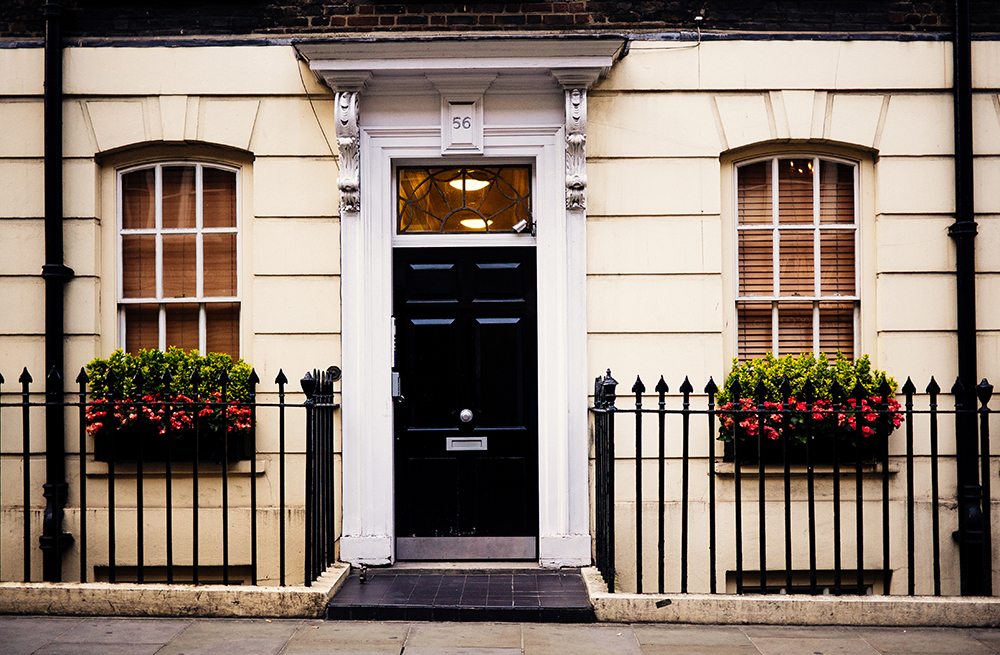
Is the UK expensive?
YES! Whilst certain things are ridiculously expensive, other things are incredibly well priced.
Rent is incredibly expensive, with outskirts flats costing over £1900 a month in London. That’s pretty crazy! Prices for buying houses are also costly, and you will need to save a hefty deposit to be able to take out a mortgage.
Whilst most of your wage will go on rent and bills, the good news is that food prices seem to be pretty decent. If you plan your food properly and stick to healthy and nutritious items, you don’t have to spend a lot. There are also different tiered supermarket, some more affordable than others, allowing you to pick for your budget.
You can find cleaning products, household and personal hygiene items at very reasonable prices, more so than what I found around the rest of Europe. Clothes are relatively well priced too, better than the rest of Europe in numerous instances. However, please note that sizes are arbitrary, the fashion is hugely different from from the rest of Europe and clothes are not well-fitted.
Education is incredibly expensive in the UK, students expected to pay over £10k+ per academic year.
Transportation is one of the main expensive items, buses, trains, and taxis being unbearably costly. On so many levels, it turns out to be cheaper to own a car and share a journey between two people, than buying a one-way train ticket. Unfortunately, since everything is privatised, there is no way to cut down on these costs.
For national averages, check numbeo for more detailed costs on items such as milk, meats, and vegetables.
Having said all these, if you budget accordingly, you can have a comfortable life in the UK.

Study in the UK
International students have always been an important presence in the UK and their numbers continue to increase. The UK universities are known to be incredibly prestigious, with Oxford and Cambridge being the more well known. Every year, you can check the best ranking Universities in the UK.
Apart from prestige, British universities are also cheaper than many other international institutions. In comparison to the US, for example, a UK academic year can be less than half the price.
There are several loans and scholarships available for those who wish to study in the UK. Just note that most students cannot work more than 20 hours a week.
Always check the visa requirements to be able to study in the UK. Remember to allocate extra finances to cover your costs. Note that since the Brexit, EU students pay as the same rates as International students. The standard undergraduate tuition fee for home fee-paying students is around £10k per academic year. Check this official site for up-to-date information.
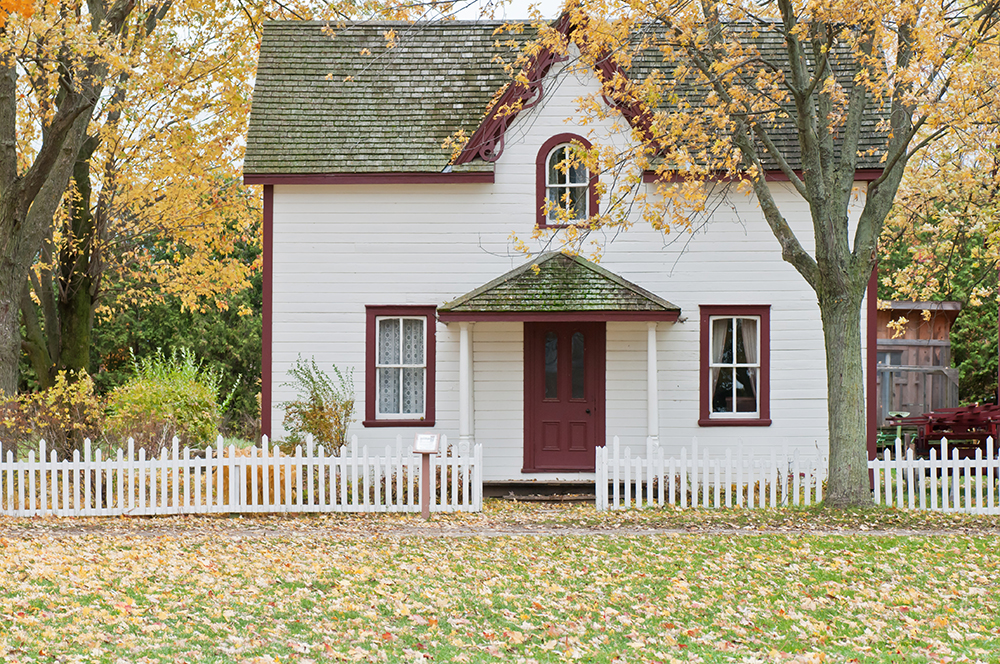
Homes for Rent in the UK
When it comes to homes for rent in the UK, there is an incredible number of things you need to prepare yourself for. All rental properties in the UK come with huge amounts of specifications, and you need to know what you are looking for right from the start. You should take several factors into account, such as location, price, type of accommodation, council tax, requirements from landlords, tenancy contracts, safety deposit scheme. Don’t fret, we’ll discuss them one by one.
Location – As with rental properties, you need to know what homes for rent you are looking for. Where is the ideal location? Is it close to work? Close to university? Is it in a rural place, right in the city centre? Needless to say that location plays an important role in setting the price. The better the location, the higher the price. Remember to always check the neighbourhood. Ideally, when you view the house, you will pay serious attention to the type of houses around, what neighbours you might get etc.
This will be different from individual to individual. Check your street for crime, housing information and more.
Type of rental properties
There are three types of rental properties in the UK:
- Furnished – with all furniture and fixtures, sometimes with pots and pans too.
- Part-furnished – with some furniture and fixtures
- Unfurnished – no furniture, but some white goods (e.g. fridge, washing machine, dishwasher etc)
Flats in the centre tend to be fully furnished, whilst houses located in the suburbs tend to be unfurnished. Upon rental, you will be given a list of all furniture, fixtures, white goods. You will be responsible for keeping everything in the same condition as when rented. It is your responsibility to monitor items.
Once you move into your new property, you are responsible for sorting out your own direct debits for bills, internet, and council tax. You are also responsible for telling the Government that you moved, and make sure you get an up-to-date address on your driving licence (depending on your nationality). Don’t forget to register to vote!
Make sure you also change the address with your bank, so you receive all bank statements.
Student or Professional rental properties
You may come across two types of properties online: Student or professional. You need to remember that student accommodations tend to be shared and more rudimental. These houses are less desirable for professionals, but the requirements and deposit tend to be much lower. Rent is usually much cheaper.
Professional houses are for those in work, with a full-time job. These are houses kept in better condition are more expensive and come with a higher deposit. These are great for working couples.

Agency vs No agency
The big dilemma when moving to the UK is to get an agency to sort out your accommodation, or try to deal with the landlord directly. There are few houses on the market advertised from the landlord directly. You will mostly need to rent via an agency.
When you rent, the agency will act on behalf of the landlord, so all communication will be done via them. Before you can rent a property, you will have to fill in and submit a form with all your details and income. If there is competition for the rental, the landlord has the right to pick whoever they seem fit. Once you are selected, you will need to go through checks, such as credit checks, background checks and your agency will ask for a reference letter from your previous landlord.
If you rented privately from abroad, you will need a letter from your previous landlord, translated into English. If you own a property abroad, you will need a letter from your bank stating that you are up-to-date with your mortgage payment.
If you feel like you are treated unjustly, find help from Citizens Advice.
Costs of rental properties
There are so many costs involved when renting a property in the UK. You usually need one month’s rent in advance, as well as 5 weeks deposit*.
Landlords and letting agents cannot charge for things like:
- references
- administration
- credit and immigration checks
- renewing your tenancy when your fixed term contract ends
If you’re renting an unfurnished house, you will need to pay for your furniture. If the house comes with a garden, you will need to maintain it. The landlord doesn’t have to provide you with any tools to look aftet the house or garden.
Tip: visit home charity shops which sell second-hand furniture.
You need to hire a man with a van to carry your stuff from A to B. You need to immediately call various providers to ensure they know whom to bill and where you live.
*Note that your deposit has to be kept in the Tenancy Deposit Scheme. Your landlord (or agency) must provide you with a letter confirming this. Should you not receive this, you must inform the authorities immediately! This is a breach of law and they will be fined. The TDS ensures that you are dealt with properly upon the end of the tenancy agreement. Should there be any disputes in regards to the amount of deposit the landlord (agency) refunds you, you have the option to ask a mediator to help. Until all parties agree to the correct refund, the deposit stays in the TDS. This is a great way to ensure your money is protected.
When you move in, make sure you verify the check-in letter offered to you (the inventory). This should contain all fixtures, furniture and white goods. You should be able to walk around the house and mark any discrepancies.
For instance, if you see scruffs on the walls, make sure to note them down and take pictures. In fact, you should take pictures of everything noted in the inventory. Even if things look good, take a picture and keep it for your reference. As with all inventories, you have a few days to return your version of the inventory to the agency or landlord. Please note that if you don’t do so within the right time frame, everyone will assume the original inventory is correct.
If there is any damage to the house whilst you are there, make sure you let the agency know asap so they can start resolving the issue. This is a great way to ensure you are not held responsible for any damage (within reason and given it was not your fault, of course).
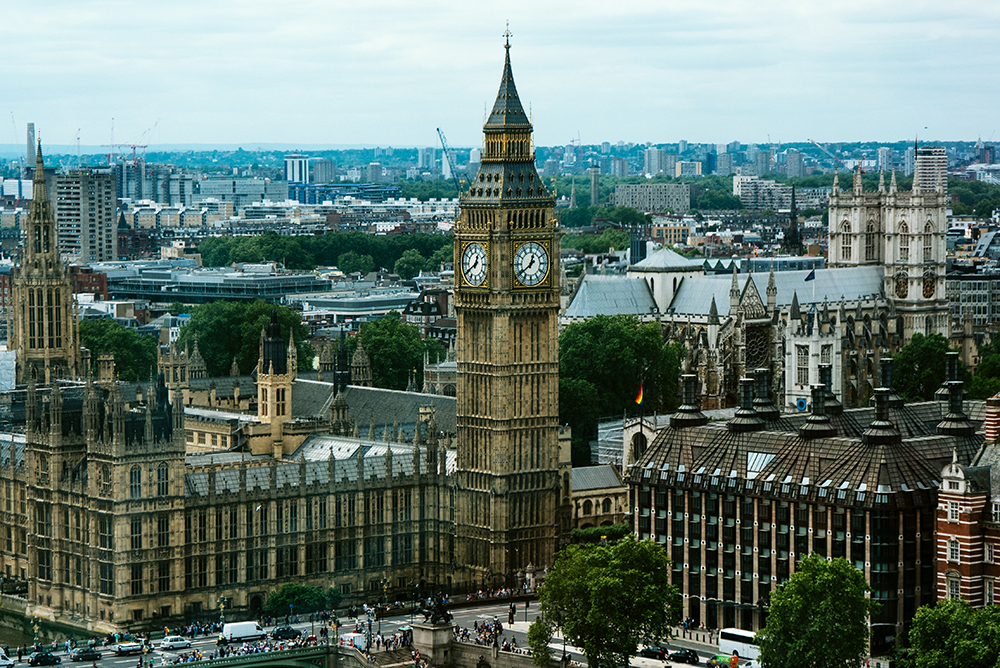
Requirements for homes to rent in the UK
Apart from being able to pay all the fees upright, you might need proof of your income. This can mean payslips, P45s or P60s. You can show your bank account statement and usually, you might need a letter from your employer. If you just start your new employment, you will very likely have to show a letter or your contract whereby it clearly shows your annual income.
Note that if you are self-employed, you need to prove your income which consists of your wages as well as dividends. You might also need a letter from your accountant to further iterate your income. You also need references from your previous landlords or agencies. If you lived abroad, you might still need some personal or/and professional statements to show you are of good character.
Things to check in rental properties
When you look to get a rental property, there are a few things I strongly recommend that you check. Make sure you always verify the official energy efficiency for the property. The agent showing you around the house should have that information to hand. It’s illegal to let a house without that information. You should have information on when the boiler and the electricity was last checked and passed the legal requirements.
Make sure your house has gas central heating. I lived in a flat with electric radiators and not only they barely heated the house, but they cost a lot of money to run! It’s probably the worst invented thing in a British house. No matter how much you love the house, keep clear of that horrible electric radiator. It will ruin you!
Ensure everything is fully functional. I’m not joking, just walk around, turn the heating on, make sure the boiler if functional, check the taps, and most importantly: verify there is enough water pressure.
Walk around the house and open wardrobes. As invasive as that may seem, sniff around for mould. You would rather not deal with damp or mould.
Check the window frames for mould and the shower and bath. Look carefully at the ceiling and around the corners to ensure there are no signs of leakage. If you see patches of paint, make sure you double-check to see what was the cause for that. If something leaked, it usually means the wooden boards from the structures have moulded and need replacing. This costs so much money, most landlords prefer selling the house than fixing it. You would rather not live in a place like that!
And finally, this is down to preference, but I like to mention it anyway: the double-tap. See if you can use it and live with it. It can be difficult in certain bathrooms to deal with this problem.

Rental property terminology
The number of bedrooms – unlike many other European countries, the number of bedrooms doesn’t include the living room/lounge. It simply states the number of actual bedrooms. The living room and kitchen are separate.
Bath – the room which contains a bathtub
En-suite – The master bedroom has its bathroom
Shower over bath – Bathtub which contains a shower
Boiler Room – Small storage room which has the boiler in it
Toilet – Usually a tiny room which contains only a toilet and a small sink.
Cloakroom – Storage room for coats
Conservatory – A glass room where you can sip your tea in the afternoon. The official definition: a room with a glass roof and walls, attached to a house on one side and used as a greenhouse or a sun parlour.
No DSS – Means the landlord or agency won’t accept someone on housing benefits
Healthcare in the UK
The National Healthcare Service (NHS) provides healthcare to all permanent residents of the United Kingdom. It is free at this point to use for the patient, although there are charges associated with eye tests, dental care, prescriptions, and aspects of personal care.
The NHS is funded by individual National Insurance contributions, which are automatically deducted from the wage. To see how much you contribute, refer to your payslip or ask the HR department if in doubt.
The healthcare system was introduced in 1948 and has been successfully running since. It offers free and unbiased healthcare to all permanent residents of the UK. Once you have an NI card, a job, and a UK address, you can register with a local GP (general practitioner) to have access to free medical care. It is important to note that you get a GP based on your location within a small radius of your address. You usually have several options around you, so make sure to check the reviews online before you decided which one to register to.
When you need medical assistance, call the reception and book an appointment. Based on your issue, you might be able to get an emergency appointment with your local practitioner. Appointments with the GP are usually 10 minutes long. Once they assess you, they either refer you to a specialist or give you a prescription.
The waiting time for an appointment tends to vary, but it’s a week on average, at least from my personal experience. Once you get referred to a specialist, the waiting time can be months.
For those in need of immediate assistance, you can access a walk-in centre. A walk-in centre only deals with minor illnesses and injuries. They are usually managed by a nurse and available to everyone. You don’t need an appointment, although the waiting time can range from a few minutes to a few hours.

A&E services
There are also emergency services called A&E services. These deal with genuine life-threatening emergencies. Less severe injuries can be treated in urgent care centres or minute injuries units. Please remember that A&E services are not an alternative to your GP appointment. If you have been in an accident, call 999 which is the emergency number in the UK.
Non-A&E services
If your GP practice is closed, call 111 which will best direct you to the local service to treat your injury. 111 is the NHS non-emergency number. It’s fast, easy, and completely free. A trained advisor will talk to you and make sure they fully understand your issue before they can better recommend suitable medicare care for you. You should use the NHS 111 service if you urgently need medical help or advice, but it’s not a life-threatening situation.
Sexual Health
There are also Sexual Health or genitourinary medicine (GUM) clinics which can offer a range of information, advice, and services regarding sexual health.
These can be from testing and treatment for sexually transmitted infections, through free condoms or other methods of contraception to vaccination, advice on abortion and help for people who have been sexually assaulted. These clinics operate appointment based but have walk-in services as well. Make sure to check the clinic closest to you, and check how to get an appointment or which day/time you can go in for the walking services. Anybody can go to a sexual health clinic, regardless of their age. Some clinics hold sessions for specific groups of people, including young people, gay men and lesbians.
Prescriptions cost in the UK
The current prescription charge is £9.35 per item.
A three monthly PPC is £30.25 and could save you money if you need more than three prescribed items in three months.
A 12-month certificate is £108.10 and could save you money if you need more than 12 prescribed items in a year.
You may be entitled to free prescriptions. You can check the NHS website to see if this applies to you. Note that contraceptives are supplied free of charge, always.
NHS Dental
You need to check if the dentistry you are interested in currently takes in new patients. The waiting time can be as long as 6 months or more for appointments.
If you need immediate care, there are some emergency dentists. Call 111 for help.
You can also go to a private dentist if you prefer. Some popular dentists will have a waiting time. Treatments cost quite a bit.

Friendships and family in the UK
At first glance, the British like to keep themselves to themselves, but the moment you enter the magical gates of a pub, everything changes. One pint is all it takes for your work colleagues to start opening up, chattering about this and that. The British are actually quite friendly and curious innately. Don’t be offended if everyone asks you where you are from or make you say something in your language. Most of them mean no harm, they just want to know and use this as an icebreaker. In fact, I don’t even know how many times they liked to guess that I am Swedish or French (I’m neither).
To me, the British seem quite awkward, to begin with, but once you find common ground they are effortless to talk to. I love British wits and find it effortless to make friends in Britain. I love their silly jokes and I learned to like the sarcasm, so much so, that I use it every day too.
If there is one thing I learned, is that the British love to party. The pub culture is real and as vibrant as ever. Students like to go out a lot. There is a clear drinking culture.
Older generations like afternoon teas and are more coffee oriented. Especially in rural areas.
The drug culture is also widely spread in the UK. Most people are open about smoking weed and usually, Friday night is reserved for more serious drugs such as cocaine, MDMA or speed to keep the party going. There is such a thing called the “Monday blues” which has a double meaning. It means going back to work, but also the actual post drug comes down.
Pubs are fun and pub crawls are a thing in Britain. Note that drinks are expensive in the UK and if you are not careful, you can find yourself in a situation whereby you work to afford to drink. Keep it cool!
If you are a social creature, you will find it easy to make friends in Britain, especially when you are out with others. Most people will be happy to talk to you. Once you make it into a group, you will be invited to new social events all the time. There is always something going on.
If you wish to meet new people, you can also sign up for citysocializer and make new friends this way.

“Hidden” costs for expats
Council Tax – always check your council tax band before you get a flat. Usually, the agent will be able to tell you how much you should expect to pay. As discussed, this is on top of your rent and utilities.
Tax and NI – The salary advertised is always gross. Deductions apply, and you have to take the tax and NI contributions out of your gross salary to calculate how much money you actually make.
Running a car – The national average for car insurance is about £500 a year. Add road tax to this, maintenance, yearly MOT cost and fuel.
Public transport – Public transport in the UK is costly. Some local trains tend to be late, yes, but the cross-country trains are usually spotless, fast and on time. Those are, of course, more expensive, but you get what you pay for. The best course of action is to always reserve a seat if you travel between cities, but note that this usually costs more.
Banking in the UK
To open a bank account, you will need an address and some legitimate ID. Usually, your passport will do the trick. Make sure you bring your tenancy agreement as proof of address. Make sure you go for a bank account which gives you a free account with a standard debit card. Ask for a contactless card. This allows you to pay for things up to £100 contactless.
There is no way for me to tell you what bank is best for your needs. It’s usually easier to open an account with one of the UK’s largest banks – Barclays, Lloyds, HSBC or RBS/NatWest. Nowadays it’s easiest to open bank accountant with Monzo or Staling Bank. I bank and recommend Monzo.
Ideally, you will check a financial website to compare all current accounts and make sure you are aware of your benefits.
If you wish to get a credit card, you might find it tricky as you don’t have any credit history in the country. However, you can always check dedicated websites to see how to get the best credit card for your needs. Please ensure you keep up with your payments or only get a card because you need the points/benefits. If you are late with your payments, you will be greatly penalised and your credit rating will be affected. This means that you might not be able to apply for mortgages, loans, or even phone contracts. If you don’t pay your bills or credit card, eventually your debt will be passed onto a debt collecting agency. You can also be prosecuted in the UK courts and have some of your items or salary seized, depending on the company/governments you owe money to.

Cultural difference
No matter where you come from, moving to the UK will have an impact on you. There will always be some culture shock.
Britain is so walking-friendly as it offers so many trails all around the country. There are several cities in the UK which are incredibly bike-friendly, which makes it easier for residents to commute without the need for a car or public transport. There are road rules to protect cyclists and generally speaking I really like driving in the UK.
Cyclists are advised to wear helmets and protecting gear, make sure they have visibility jackets and working lights at all times. I cycled for 3 years, mostly trouble-free.
It is common to talk to your neighbours and look after each other’s homes when one is on holiday. This is usually a thing in the richer suburbs. It is common for the postman to ask you to take in a parcel for your next-door neighbour. They will come and collect it later on. People do this all the time.
It is also common to postcards before Xmas for your neighbours to wish them happy holidays. They will sometimes do the same. Just push your cards through the letterbox.
Most things can be done online in the UK. Applications, shopping, groceries, even Royal Mail purchases, which makes things easy and awesome.

For the internet, make sure you check your area you want to move to in order to ensure you have coverage! This is incredibly important in rural places. Try to get fibre if it’s available in your area.
You will eventually understand which shop you prefer the most. Marks and Spencer and Waitrose will have some of the best products, but they are expensive.
For petrol, supermarket petrol stations are more affordable.
You might need to move to specific city because of your job or university. If you have the option to move just about any more, check various areas in the UK to see which one suits your requirements. Rural England is stunning. Mountainous Scotland is dreamy. How isolated do you want to be? Love the beach? Go for Cornwall or the Yorkshire Coast.
Wales is cheap and great, with beautiful landscapes.
It’s very important to note that every country in the UK, England, Wales, Scotland and Norther Island all have their own laws. For example, tax rates, university fees and healthcare costs are slightly different.

British citizenship
Perhaps a premature discussion, but if moving to the UK means settling forever, then you might want to consider certain things. Obtaining British citizenship is absolutely not easy, and it requires a sheer amount of paperwork.
I am not an immigration lawyer, but I can offer some advice which I wished I would have received when I first arrived at the country.
If you dream of getting British citizenship, you have to ensure that you keep each and every single piece of documentation you get.
Keep all your bank statements safe!
Ensure you keep ALL p45s (payslips) and ALL p60s.
Keep proof of all your addresses! Ideally, you will keep a copy of all tenancy agreements as well as a copy of all your council tax bills.
Keep a copy of all your papers and IDs. If your passport expires, ask your government to return your old passport and keep it safe.
Keep a spreadsheet with all dated you travel to and from the UK. Keep a copy of your plane tickets.
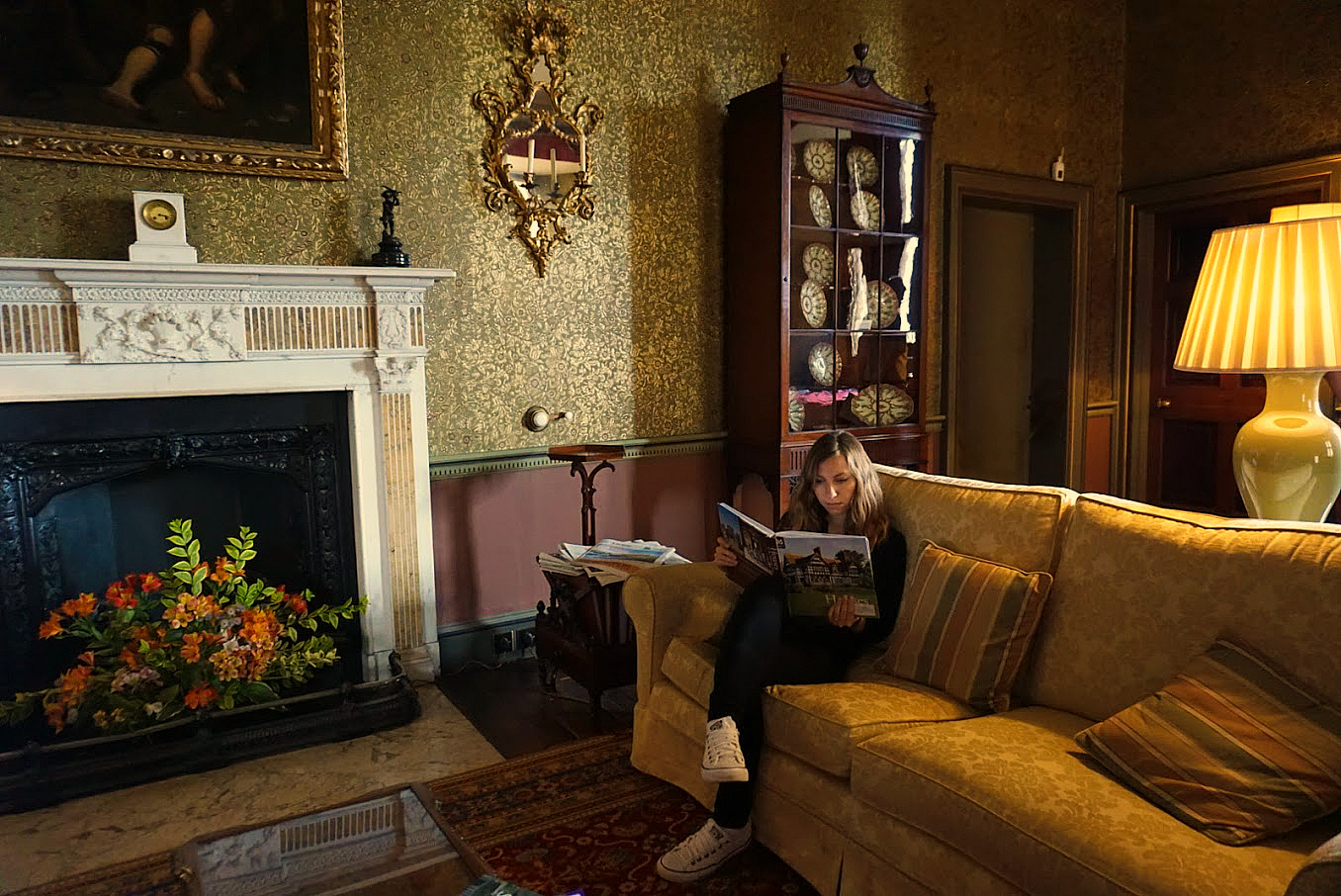
Are you ready to move to the UK? Did you find the information useful? Is there anything you think I should add to the list? Please tell me all about it in the comments section below!









Leave a Reply